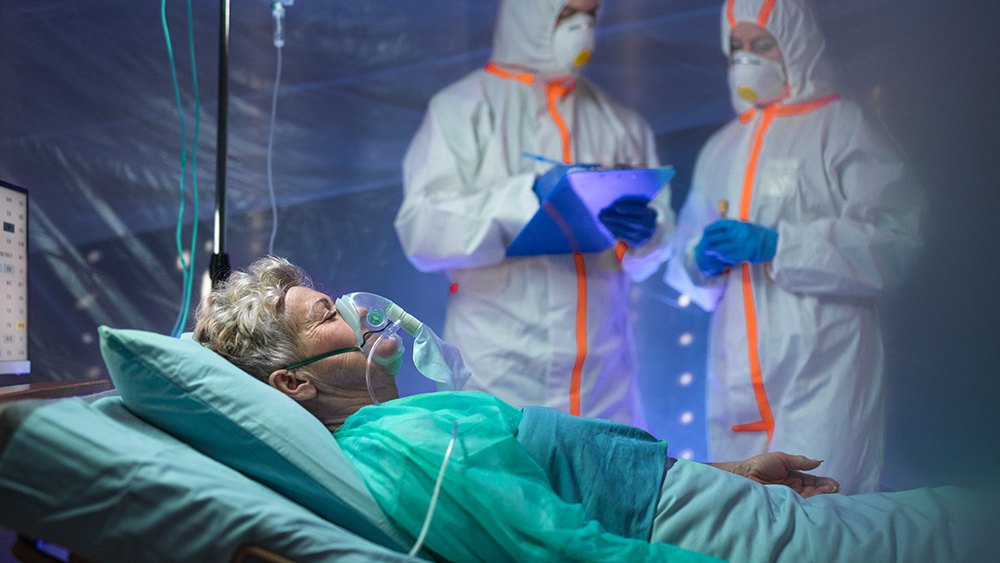
It is now common to give out a blanket “Do Not Resuscitate” notice for patients, from young people with learning disorders to seniors becoming more dependent on others in the majority of care homes in the United Kingdom.
This practice started a while ago, and it was heavily discussed online for some time, with people sharing stories of patients being asked to sign DNR forms or having these forms signed on their behalf.
General practitioners have also been contacting their elderly patients and those who have chronic health disorders about DNR notices and whether or not they agree to putting such notices in their files.
The wordings were also kept positive, and are designed to elicit a positive response, in a tricky form most commonly used by pollsters and insurance salesmen.
One GP in surgery sent out a letter to a home that catered to autistic adults, saying that the carers should put in place plans to prevent their patients from being resuscitated if they become critically ill.
Others also sent out similar letters to establishments caring for the elderly and the disabled. Blanket decisions were also made for residential homes that are caring for patients with learning difficulties.
This practice is not entirely new, and while light has been shed in the wake of the Wuhan coronavirus (COVID-19) pandemic, this has been happening long before the pandemic began.
For instance, a 51-year-old man with Down’s Syndrome was given a DNR because of his disability, and the hospital he was admitted to was given instructions that there will be no attempt to resuscitate him in case of a cardiac or respiratory arrest. (Related: Grieving father reveals how hospital COVID protocols led to maltreatment and death of his disabled daughter.)
However, no consent form was signed, and there had been no agreement with the patient or his relatives regarding this action. The medical director for the relevant part of the National Health Service said their policy complied fully with the national guidelines from professional bodies.
A head of a large charity also said they believe DNR orders were frequently being placed in patients who have learning disabilities without their knowledge or the agreement of their families.
These actions were in fact, illegal.
The U.K. High Court ruled in 2015 that the carers for patients with mental illnesses should be consulted before hospitals apply DNR notices. However, due to the coronavirus, there had been a flood of cases of underreporting.
Individuals were given DNR notices for other usually treatable or preventable conditions if they indicate in their records that they have contracted the Chinese virus.
For COVID-19 cases, hospitals indicate that DNRs were released because CPR was said to present at least two practical dangers in the pandemic. Researchers claim that invasive CPR procedures expose first responders to bodily fluids and can put them at high risk for infections. Responding to patients in cardiac or respiratory arrest also requires hospitals to burn through their protective gear at a time when many were in dire need of masks, head coverings, air purification systems and other necessary equipment.
Doctors should “sensitively discuss” possible DNRs
The U.K. has the National Institute for Health and Care Excellence (NICE), which is the official advisory body in health care. NICE said that doctors should “sensitively discuss a possible DNR with all adults with CFs of 5 or more.” (Related: KEEP ON KILLING: UK health officials ordered care homes to place “do not resuscitate” orders on ALL residents.)
A CF, or clinical frailty of 5 means that a patient is mildly frail and may need help with heavy housework, shopping and preparing meals. CF 6 means moderately frail, or people who will now need help with bathing. CF 7 means severely frail, or those who are dependent for personal care, and so on.
Doctors and nurses were also instructed that they should review critical care treatment when a patient is no longer considered able to achieve the desired “overall goals.”
Others could argue that if a patient is clearly dying, then it would be cruel and pointless to attempt resuscitation. This is why DNR notices were devised. However, they were originally for patients who only have hours to live, as it was not considered fair to those who continue to “strive to keep officiously alive.”
Follow HospitalHomicide.com for more information about questionable practices in healthcare facilities around the world.
Sources include:
DailyExpose.uk
NOLO.com
Brighteon.com